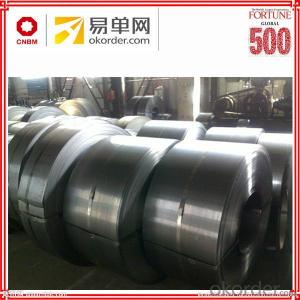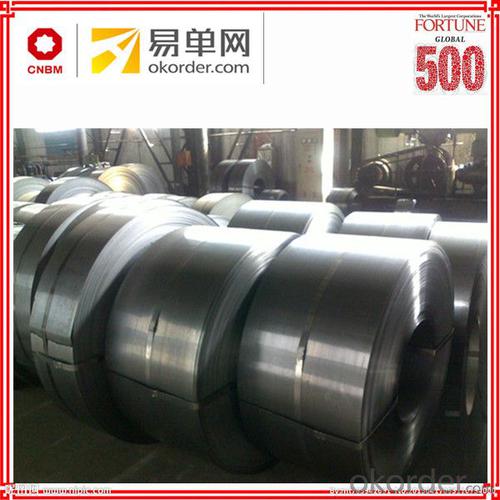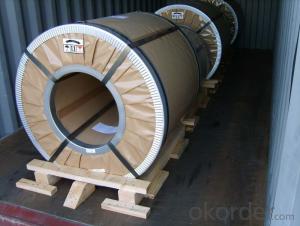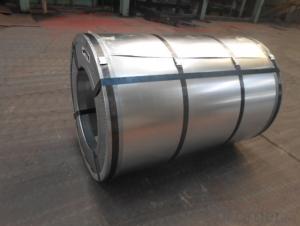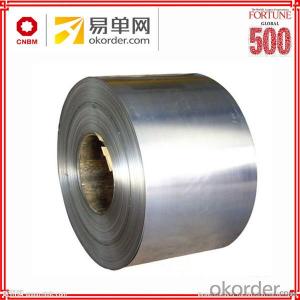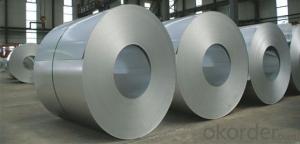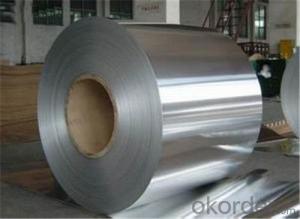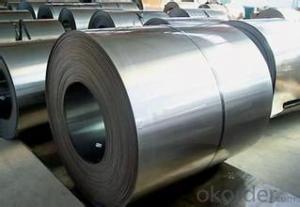Cold rolled steel coils jsc270c from china supplier
- Loading Port:
- Tianjin
- Payment Terms:
- TT OR LC
- Min Order Qty:
- 50 m.t.
- Supply Capability:
- 62450 m.t./month
OKorder Service Pledge
OKorder Financial Service
You Might Also Like
Specification
Cold rolled sheet steel products are used in a wide variety of end applications such as appliances, automobiles - exposed as well as unexposed parts, electric motors, plumbing fixtures, drum manufacturing, shelving, furniture, doors, toolboxes, tubing products, unexposed construction products, as well as many other areas of manufacturing.
Standard and Grade :
Cold rolled steel coils | ||||
JIS G3141-2005 | EN10130-2006 | ASTM A1008-12a | ||
Commercial quality | SPCC | DC01 | CS Type A/B/C | |
Drawing quality | SPCD | DC03 | DS Type A/B | |
Deep drawing quality | SPCE SPCF(non aging) | DC04 | DDS | |
Extra deep drawing quality | SPCG(non aging) | DC05/06 | EDDS | |
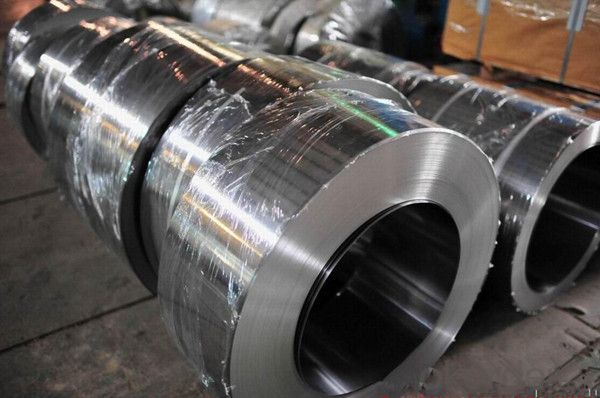
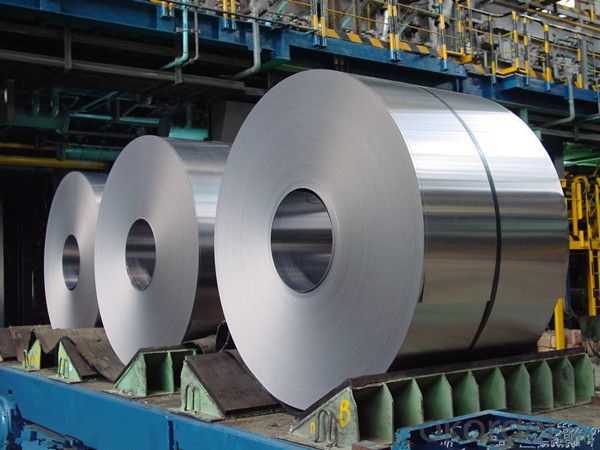
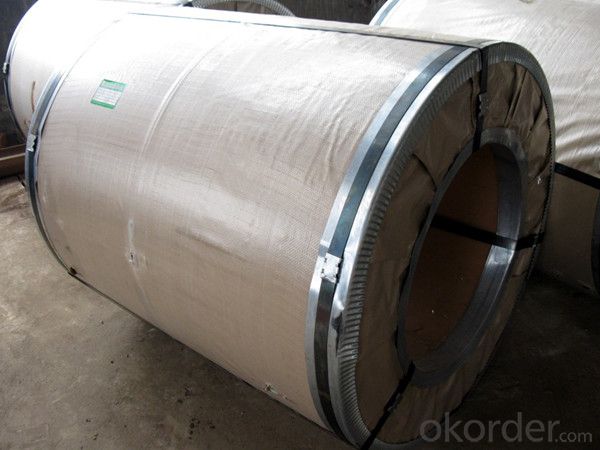
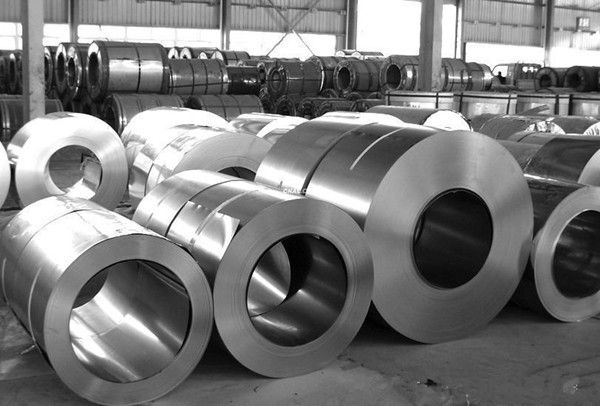
Application :
Automobile Industry, White Goods, Home Applicances, Oil & Air filters, semi product for coating with enamel or zinc,
construction & building sector, air-conditioning, furniture, radiators, tubes, profiles, mechanical construction, shelving,
containers, drums
Packing:
Packaging Detail | The packing of coil consists of anti-damp paper ,PVC film ,hardboard paper , steel box , strapped with steel strips, fitted with locks and edge protectors and guarantees the optimal condition of the delivered goods. Each coil can be additionally fitted with wooden/steel skids(eye of the side) or wooden pallets(eye of the sky) |
Delivery Time | within 30 days of receipt of LC original or prepayment |
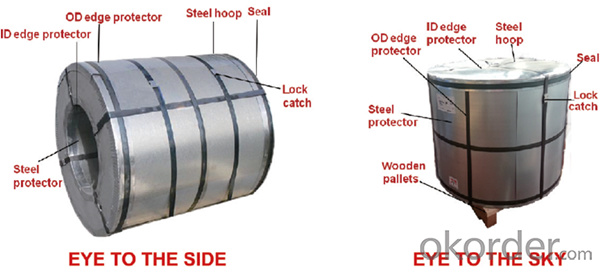
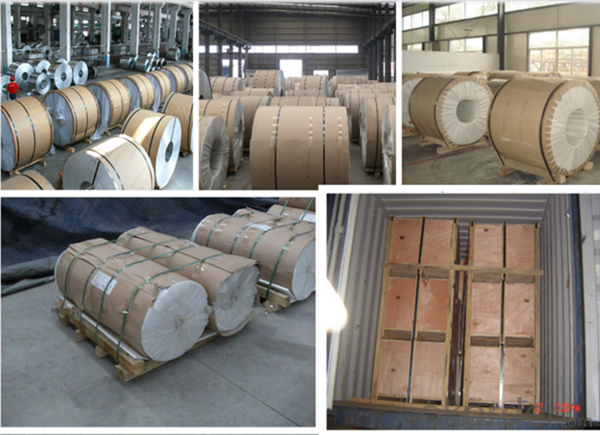
FAQ:
1. Can you offer OEM to me? What about MOQ?
Of course, we are a professional with OEM manufacturer for 9 years. the MOQ can be 50 ton/ order..
2. How to guarantee the quality of the products?
We have established the international advanced quality management system,every link from raw material to final product we have strict quality test;We resolutely put an end to unqualified products flowing into the market. At the same time, we will provide necessary follow-up service assurance.
3. How long can we receive the product after purchase?
Usually within thirty working days after receiving buyer’s advance payment or LC. We will arrange the factory manufacturing as soon as possible. The cargo readiness usually takes 15-25 days, but the shipment will depend on the vessel situation.
4.How Can I Get Some Sample?
We are honored to offer you free sample, but courier charges will be on your side.
- Q: I want to get a new knife but i cant decide if i wan a spyderco pacific salt or a cold steel ak47
- Hibben are even better in my opinion, but cold steel are reputable and do good quality high carbon steel knives and swords. Paul Chen does some knives and they are the best I've seen but a lot more expensive
- Q: What are the common methods of testing the durability of steel coils?
- There are several common methods used to test the durability of steel coils. These methods evaluate the strength, performance, and resistance of steel coils to various stresses and conditions. Some of the most widely used methods include: 1. Tensile testing: This method involves subjecting steel coils to tension until they fail. It measures the maximum stress a coil can withstand before breaking or deforming. Tensile testing provides valuable information about the strength and ductility of steel coils. 2. Bend testing: This method evaluates the flexibility and resistance to deformation of steel coils. It involves bending the coil to a specified angle and examining whether it cracks or fractures. Bend testing is essential to assess the durability of coils in applications that involve bending, such as construction or automotive industries. 3. Impact testing: This method assesses the ability of steel coils to withstand sudden shocks or impacts. It involves striking the coil with a heavy object and measuring the energy absorbed or the extent of deformation. Impact testing is crucial in determining the toughness and resistance of coils to sudden loading conditions. 4. Corrosion testing: Steel coils are often exposed to corrosive environments, such as moisture or chemicals. Corrosion testing evaluates the resistance of steel to degradation caused by these corrosive agents. Methods like salt spray testing or electrochemical testing are commonly used to simulate and assess the durability of steel coils in corrosive conditions. 5. Fatigue testing: This method evaluates the ability of steel coils to withstand repeated loading and unloading cycles. It involves subjecting the coil to cyclic stresses until it fails. Fatigue testing is crucial in industries where coils are subjected to repetitive loading, such as in machinery or infrastructure applications. 6. Hardness testing: This method measures the resistance of steel coils to indentation or scratching. It provides information about the strength and wear resistance of the material. Common hardness testing methods include Brinell, Rockwell, and Vickers hardness tests. 7. Non-destructive testing: In addition to destructive testing methods mentioned above, non-destructive testing techniques are also used to evaluate the durability of steel coils. These methods, such as ultrasonic testing, magnetic particle inspection, or X-ray testing, allow for the detection of internal defects or flaws without damaging the coil. By employing these testing methods, manufacturers and industries can ensure that steel coils meet the required durability standards and perform reliably in their intended applications.
- Q: How are steel coils used in the manufacturing of exhaust systems?
- Steel coils are used in the manufacturing of exhaust systems as they provide the necessary material for forming and shaping various components such as pipes, mufflers, and catalytic converters. These coils are typically processed through cutting, bending, and welding techniques to create the required shapes and sizes for the different parts of an exhaust system.
- Q: Where can I find a discount online for Stainless Steel Magnetic Knife Rack
- listed under are a number of them: 5.0 out of 5 stars could no longer be extra effective, March 3, 2006 by applying Denise M. Henderson (Groveland, CA united states of america) stable sturdy shape. seems great. common installation. appropriate length. Magnet appropriate capability. only confirm you place the back of the blade to the magnet first, then turn the knife flat onto the magnet. or you will cut back to rubble the knife blade. 5.0 out of 5 stars purchase it!, November a million, 2004 by applying T. Berktan (Le chef amateur) (Chicago, IL) i admire this knife holder. at first it rather is sanitary. would not take counter area and IT seems SO COOL on the wall. i might purchase it lower back with out hasitation if I had to. 5.0 out of 5 stars Very clever and seems great!! i like it!!, August 24, 2005 by applying Stacy S. Wooten i in my opinion, rather like this knife holder. It replaced into common to place up and seems great on my kitchen backsplash. it rather is long sufficient to hold all my knifes (approximately 8). it rather is a competent, stable magnet, and seems very stylish in my kitchen. i might surprisingly propose this product to everyone searching for a magnetic knife holder.
- Q: What are the different methods of coil welding for steel coils?
- Steel coils can be welded using various methods, each with its own pros and cons. The following are some commonly used techniques: 1. Resistance Welding: In this method, an electric current is passed through the coils to generate heat, which fuses the ends together. It is a fast and efficient process that produces reliable welds. Industries requiring high-speed production often utilize resistance welding. 2. Arc Welding: This technique involves creating an electric arc between an electrode and the workpiece to create a weld. It can be further categorized into processes like shielded metal arc welding (SMAW), gas metal arc welding (GMAW), and flux-cored arc welding (FCAW). Arc welding offers good penetration and can be applied to a wide range of steel coils. 3. Laser Welding: Laser welding employs a high-powered laser beam to melt and join the ends of the coils. It provides precise control, high welding speeds, and minimal distortion. Industries such as automotive and electronics, which require precision and aesthetics, often rely on laser welding. 4. Induction Welding: This method involves using electromagnetic induction to heat the coils, which then melt and are pressed together to form a weld. It is suitable for thin-gauge steel coils and allows for precise control over the welding process. 5. High-Frequency Welding: High-frequency current is used to heat and weld the coils together in this technique. It is commonly used for pipes and tubes and offers high production rates and good weld quality. 6. Friction Welding: Friction welding creates a weld by generating heat through the rubbing of the coil ends. It is a fast and reliable method that produces strong joints. Industries requiring high-strength welds, such as automotive and aerospace, often employ friction welding. These are just a few of the many coil welding methods for steel coils. The choice of technique depends on factors like the steel type and thickness, required weld strength, production speed, and project requirements as a whole.
- Q: What are the main factors that affect the flatness of steel coils?
- The main factors that affect the flatness of steel coils are the quality and thickness of the steel material, the tension and speed of the rolling process, the temperature and cooling rate during the cooling process, and any potential defects or imperfections in the machinery used for rolling and cooling the steel coils.
- Q: How are steel coils inspected for chemical composition using spectroscopy?
- Steel coils can be inspected for their chemical composition using spectroscopy, specifically techniques like X-ray fluorescence (XRF) or laser-induced breakdown spectroscopy (LIBS). In XRF, an X-ray beam is directed onto the surface of the steel coil, causing the atoms in the sample to emit characteristic X-ray fluorescence radiation. By analyzing the energy and intensity of these emitted X-rays, the elemental composition of the steel can be determined. XRF is a non-destructive and rapid technique, allowing for quick and accurate assessment of the chemical composition of the steel coil. LIBS, on the other hand, involves focusing a laser beam onto the surface of the steel coil, creating a high-temperature plasma. The plasma emits light, which is then collected and analyzed using a spectrometer. The emitted light contains characteristic atomic and ionic emissions, allowing the identification and quantification of various elements present in the steel. LIBS is also a non-destructive technique, providing real-time results and requiring minimal sample preparation. Both XRF and LIBS offer advantages in terms of speed, non-destructiveness, and ease of use for inspecting steel coils for their chemical composition. These spectroscopic techniques play a crucial role in quality control and assurance, ensuring that the steel meets the required specifications and standards for various industrial applications.
- Q: I saw this really pretty ring online and it was made of steel. Is this a good ring? If I were to wash my hands with it on, would it rust and turn my finger green?
- Steel rust is brown not green! Very much expected to be of one type of stainless steel, and you should have no problem.
- Q: I'm kind of confused as to how the difference between a stainless steel and blued steel firearm is sometimes only $20 or so. Isn't stainless steel fairly more expensive to manufacture than plain carbon steel? Are some stainless steel firearms simply stainless steel finished with carbon steel underneath?
- Stainless guns are made out of stainless steel. Now there are also guns that are coated in nickel. Those are made of the usual gun steel. Stainless steel isn't really that much more expensive than normal steel when bought in large quanities.
- Q: What kind of insulation should be used in a steel building?
- Fiberglass batts or spray on foam both work well
Send your message to us
Cold rolled steel coils jsc270c from china supplier
- Loading Port:
- Tianjin
- Payment Terms:
- TT OR LC
- Min Order Qty:
- 50 m.t.
- Supply Capability:
- 62450 m.t./month
OKorder Service Pledge
OKorder Financial Service
Similar products
Hot products
Hot Searches
Related keywords
